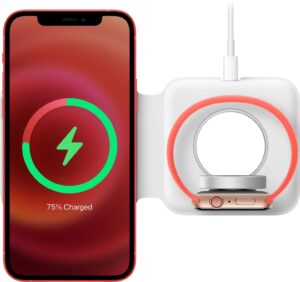Looking for a battery solution that outperforms lead-acid batteries? Well, look no further! Nickel metal hydride batteries offer a host of benefits when compared to their lead-acid counterparts. From longer lifespan to higher energy density, these batteries are revolutionizing the power industry. So, what are the benefits of using nickel metal hydride batteries compared to lead-acid batteries? Let’s dive in and explore how these advanced batteries are changing the game.
What Are The Benefits Of Using Nickel Metal Hydride Batteries Compared To Lead Acid Batteries
Introduction
When it comes to choosing the right battery technology, there are a few options available in the market. Two popular choices are nickel metal hydride (NiMH) batteries and lead-acid batteries. While both have their merits, NiMH batteries offer several benefits over lead-acid batteries. In this article, we will explore the advantages of using NiMH batteries and why they are a better choice in many applications.
1. Higher Energy Density
One of the key advantages of NiMH batteries compared to lead-acid batteries is their higher energy density. Energy density refers to the amount of energy a battery can store per unit of volume or weight. NiMH batteries have a significantly higher energy density than lead-acid batteries, which means they can store more energy in a smaller and lighter package.
This higher energy density makes NiMH batteries an excellent choice for portable devices such as smartphones, laptops, and electric vehicles. With more energy packed into a smaller space, NiMH batteries can power these devices for longer periods without the need for frequent recharging.
2. Longer Lifespan
NiMH batteries also have a longer lifespan compared to lead-acid batteries. This means they can withstand a greater number of charge-discharge cycles before their performance starts to degrade. While the lifespan of NiMH batteries can vary depending on factors such as usage and charging habits, they generally outperform lead-acid batteries in this regard.
Lead-acid batteries tend to degrade faster, especially when subjected to frequent deep discharge cycles. In contrast, NiMH batteries can withstand deep discharge cycles without compromising their overall lifespan. This makes NiMH batteries a reliable and long-lasting choice for applications that require frequent recharging and deep cycling, such as renewable energy storage systems and electric vehicles.
3. Environmentally Friendly
Another significant advantage of NiMH batteries is their environmental friendliness compared to lead-acid batteries. Lead-acid batteries contain toxic substances such as lead and sulfuric acid, which can pose significant risks to human health and the environment if mishandled or improperly disposed of.
In contrast, NiMH batteries do not contain harmful elements such as lead and are thus safer to handle and dispose of. Additionally, NiMH batteries are more recyclable than lead-acid batteries, as they contain fewer toxic materials and are easier to process. This makes NiMH batteries a more sustainable choice for those looking to minimize their environmental impact.
4. Faster Charging
NiMH batteries boast faster charging times compared to lead-acid batteries. This is due to their ability to accept higher charge currents without the risk of damage or reduced battery life. NiMH batteries can be charged at a higher rate, which means they can be replenished more quickly, minimizing downtime and improving overall productivity.
This advantage is particularly beneficial in situations where quick charges are required, such as emergency backup systems and electric vehicles. With faster charging, NiMH batteries enable users to get back to using their applications or vehicles in a shorter amount of time.
5. No Memory Effect
Memory effect is a phenomenon commonly associated with some battery chemistries, such as nickel-cadmium (NiCd) batteries. It refers to the loss of battery capacity when it is repeatedly recharged after being only partially discharged. However, NiMH batteries are not affected by memory effect, unlike their NiCd counterparts.
This lack of memory effect in NiMH batteries means users can charge them at any time, regardless of the battery’s current state of charge. They do not require a full discharge before recharging, making them more convenient and user-friendly. This attribute is particularly valuable in applications where batteries are frequently topped up, such as cordless power tools.
In summary, NiMH batteries offer several benefits over lead-acid batteries. They have a higher energy density, longer lifespan, are environmentally friendly, charge faster, and are not affected by memory effect. These advantages make NiMH batteries a preferred choice for various applications, ranging from portable electronics to renewable energy storage systems and electric vehicles.
Whether you are looking to power your smartphone or considering energy storage solutions, NiMH batteries provide a robust and efficient option. With their superior performance and eco-friendliness, NiMH batteries are continuously gaining popularity in the world of battery technology.
Comparing Toyota Lithium-Ion vs Nickel-Metal Hydride Batteries: "Ask the Toyota Expert"!
Frequently Asked Questions
What are the benefits of using nickel metal hydride batteries compared to lead acid batteries?
Nickel metal hydride (NiMH) batteries offer several advantages over lead acid batteries. These include:
How do NiMH batteries compare to lead acid batteries in terms of energy density?
NiMH batteries have a higher energy density compared to lead acid batteries. This means that they can store more energy in a smaller and lighter package, making them ideal for portable devices and applications where weight and size are important factors.
Are NiMH batteries more environmentally friendly than lead acid batteries?
Yes, NiMH batteries are considered to be more environmentally friendly compared to lead acid batteries. They do not contain toxic heavy metals such as lead, making them safer to handle and dispose of. Additionally, NiMH batteries can be recycled, reducing their impact on the environment.
How do NiMH batteries perform in terms of self-discharge compared to lead acid batteries?
NiMH batteries have a lower self-discharge rate than lead acid batteries. This means that they can retain their charge for a longer period of time when not in use. It allows NiMH batteries to be more effective for applications that require long-term storage or infrequent use.
Can NiMH batteries be used as a replacement for lead acid batteries in automotive applications?
Yes, NiMH batteries can be used as a viable alternative to lead acid batteries in certain automotive applications. They can provide higher energy density, better efficiency, and longer cycle life compared to lead acid batteries. However, the specific requirements and characteristics of the application should be taken into consideration before making a decision.
Final Thoughts
Nickel Metal Hydride (NiMH) batteries offer several advantages over traditional Lead Acid batteries. First, NiMH batteries have a higher energy density, meaning they can store more energy in a smaller size, making them ideal for portable devices. Additionally, NiMH batteries have a longer lifespan and can be recharged hundreds of times without significant degradation. They also offer better performance in extreme temperatures and have a lower self-discharge rate. Lastly, NiMH batteries are more environmentally friendly as they do not contain hazardous lead or other toxic materials. In conclusion, when considering the benefits of using Nickel Metal Hydride batteries compared to Lead Acid batteries, the former emerge as the superior choice in terms of energy density, lifespan, performance, and environmental impact.



